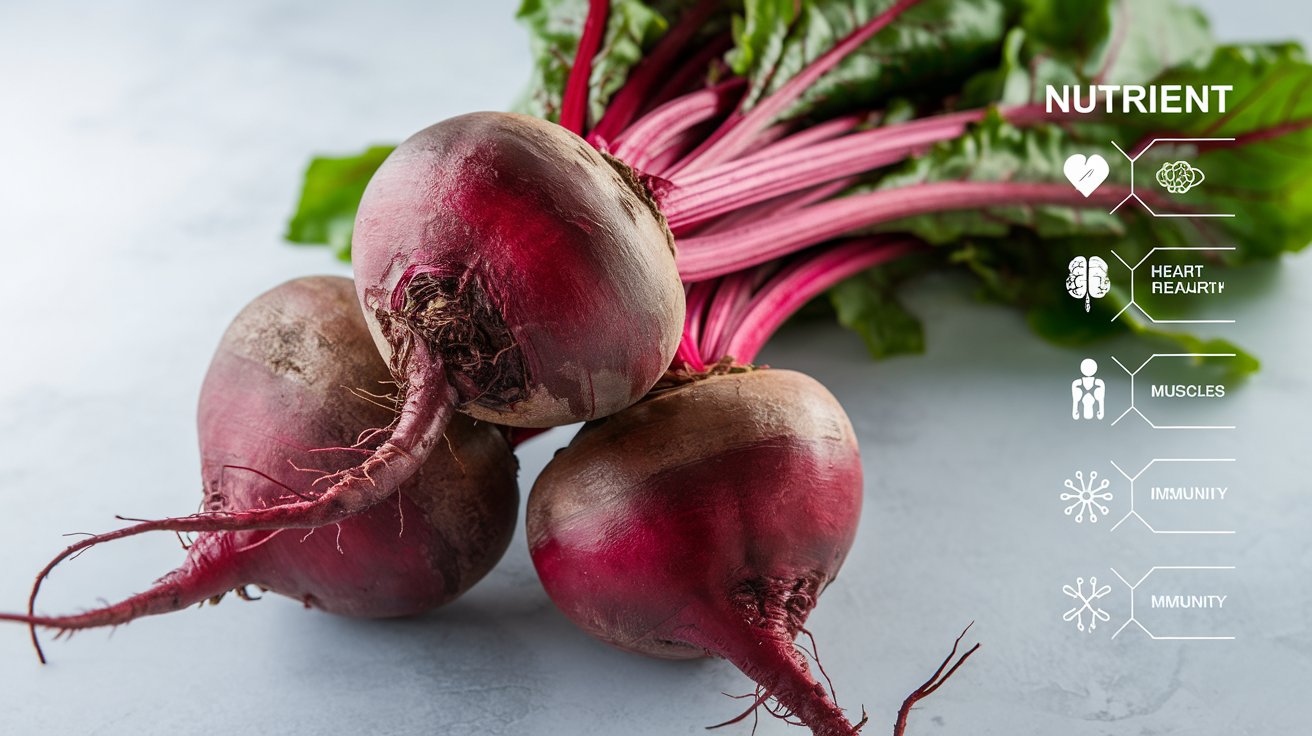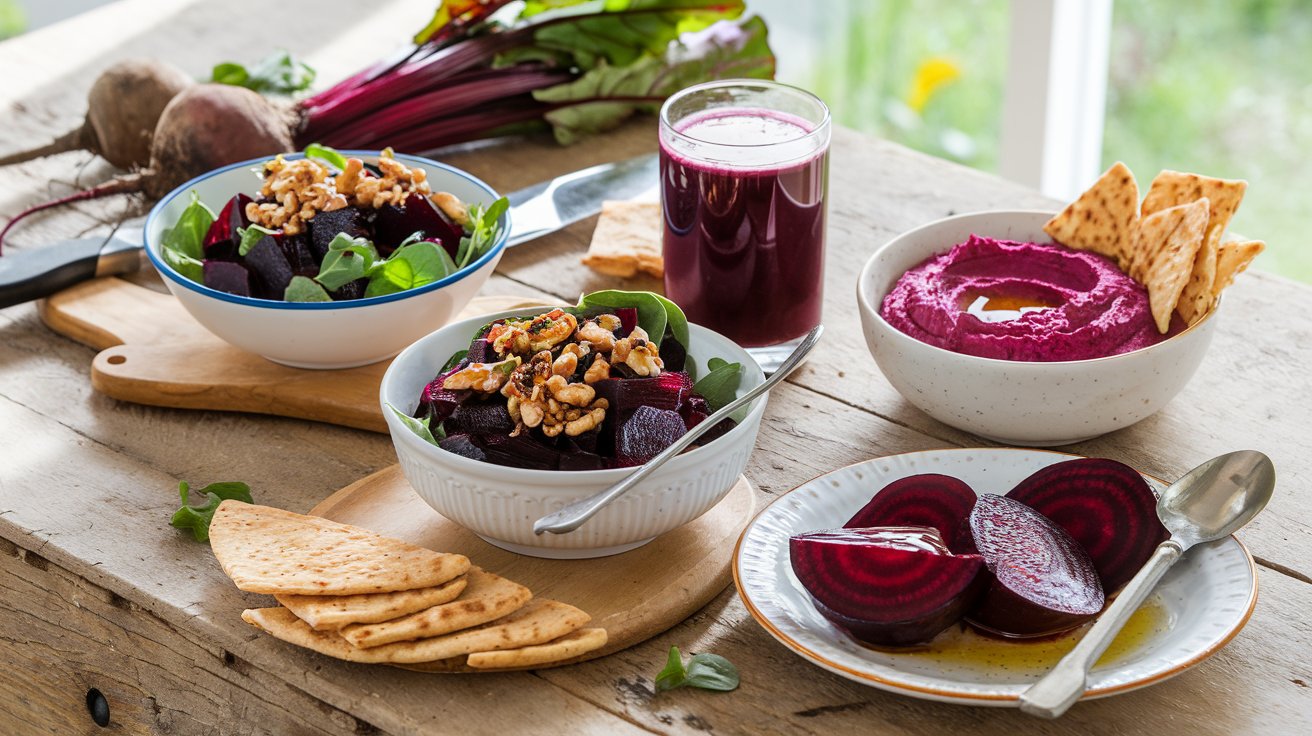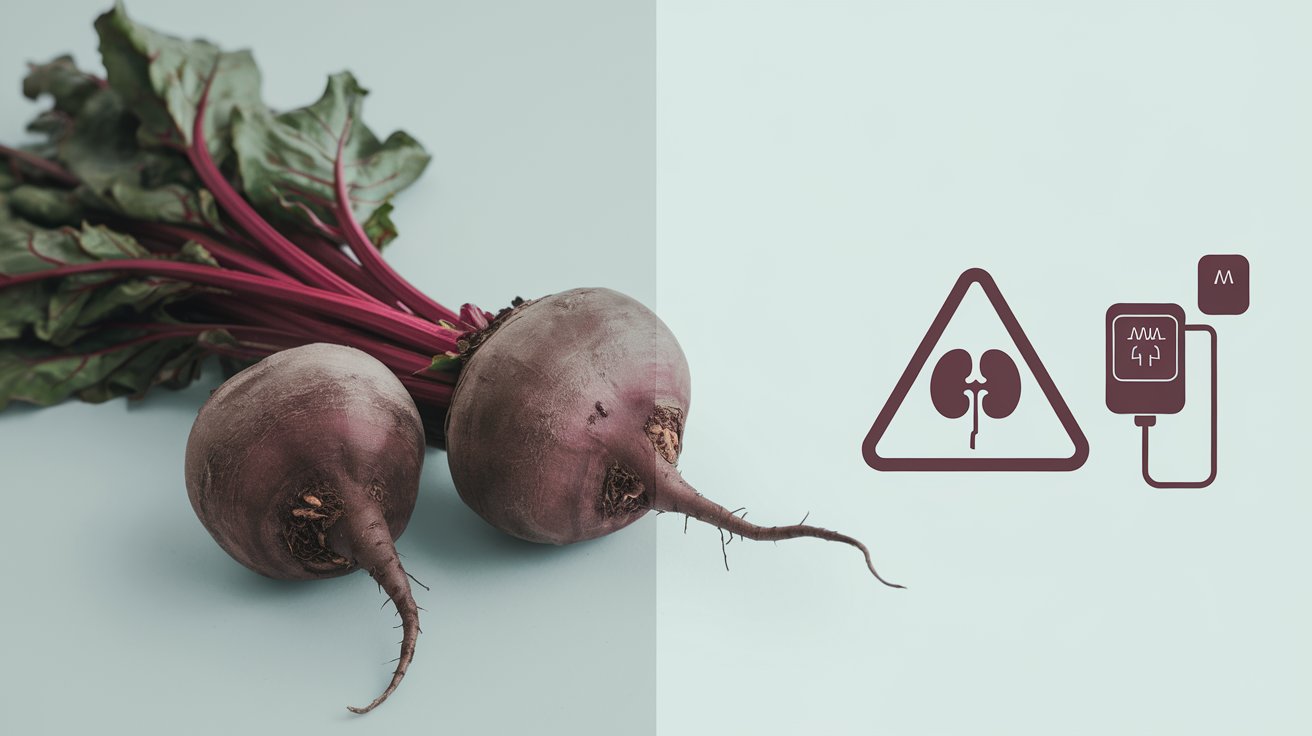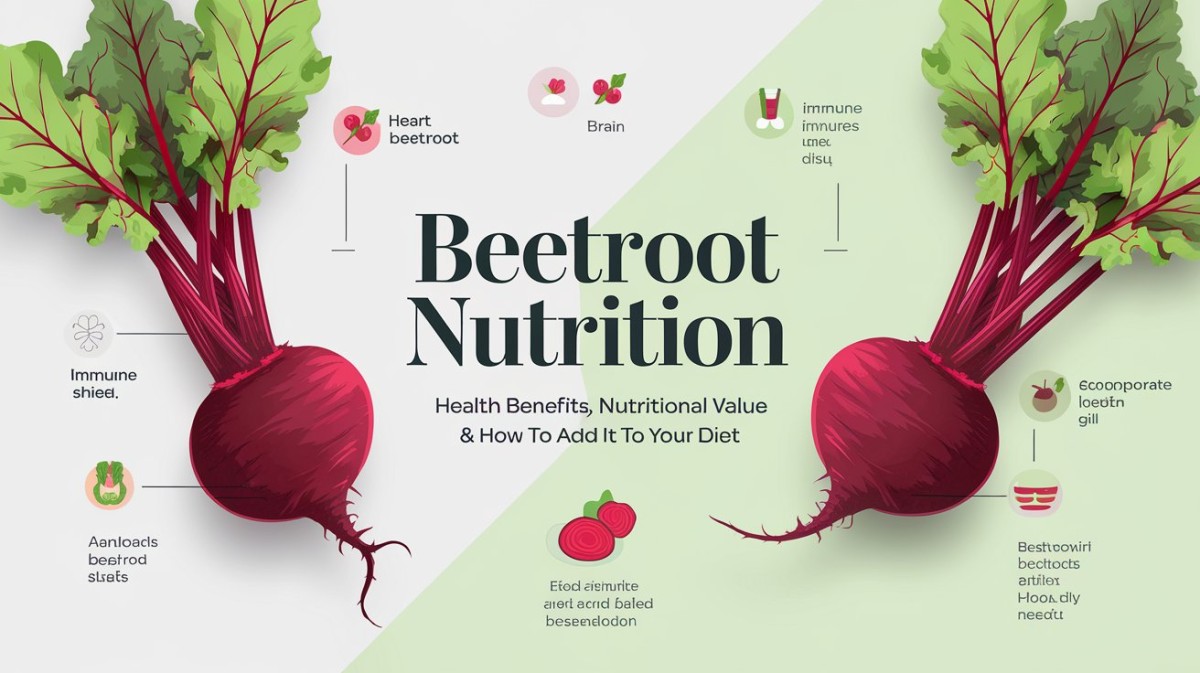Speaking of natural foods with high nutritional values, beetroot, referred to as simply beet, is usually among the best. Brimming with vitamins, minerals and antioxidants, beetroot is one of the most healthful foods out there. Namely, what is it about a beetroot that makes it so nourishing and how to include this versatile root vegetable in the modern person’s meal plan?
Nutritional Analysis of Beet Root
Beetroot is wonderful for its nutritional value that is not accompanied by a high calories or fats; they are pretty rich in fiber and nutrients. Here’s what you’ll typically find in a single cup (about 136 grams) of raw beetroot:
❖ Calories: 58
❖ Protein: 2.2 grams
❖ Carbohydrates: 13 grams
❖ Fiber: 3.8 grams
❖ Vitamin C: 8% of the Daily Recommended Intake (DRI).
❖ Folate: 37% of the DRI
❖ Potassium: 13% of the DRI
❖ Magnesium: 6% of the DRI
❖ Iron: 4% of the DRI
❖ Manganese: 22% of the DRI
This nutrient composition makes beetroot to be an energetic food that contains very few calories as recommended by dieticians when preparing meals to boost the health of many people today.
Health Benefits of Beetroot

1. Supports Heart Health
There are lots of dietary nitrates in beetroot that is converted into the nitric oxide in the body. Nitric oxide can make blood vessel walls smooth and more pliable so more blood can flow through them and raises blood pressure less. As established by researches, this can help decrease blood pressure by a tremendous amount thereby minimizing the chances of getting a heart disease or experiencing a stroke.
2. . Boosts Athletic Performance
Owing to the nitric oxide increase, beetroot juice has been widely used by athletes As a result. Nitric oxide enhances the delivery of oxygen to muscles so enhances muscle capacity, this makes body performances for instance in games enhanced. Research has show that when athletes take beetroot juice prior to games or exercises, they stand to benefit from improved endurance or power.
3. Enhances Brain Health
Similarly, nitric oxide improves blood flow to the brain as well as in all the other parts of the body that are in need of it. Beetroot might help to improve mental performance, which in theory should help to mitigate the effects in dementia. This makes beetroot ideal in areas of the brain that are associated with the ability to decide and memorize, making it proper nutrition to help the brain function very well.
4. Supports Digestion and Gut Health
Beetroot contains fiber compounds important in digestion and maintaining of a healthy digestive system. Fiber is beneficial on the bowel movement, ease on detoxification process as well as on the balance of good bacteria in the stomach. Also, it helps to avoid some gastrointestinal problems, like constipation and reduce the probability of developing cancer.
5. Aids in Detoxification
The liver has the noble duty of purging the body of toxins and beetroot may be of great assistance in this matter. Beetroot has other elements such as betalains that are helpful in the removal of toxins from the human body especially if its origin is the liver. Betalains also contain anti-inflammatory effect, and thereby they can help in prevention of chronic diseases.
6. Improves Immune Function
This planetary food also increases the vitamin C level in the body which enhances the immune system of the body. Vitamin C is an antioxidant nutrient that works to eliminate free radicals in the human body and a key helper in the body’s shield against regular sicknesses. Besides, beetroot has several other antioxidants, and their synergistic effect helps to improve the body’s capacity to combat oxidative stress.
7. Anti-inflammatory Properties
Inflammation is thought to be connected to such diseases as arthritis, diabetes, and heart diseases. Beetroot contains several anti-inflammatory substances such as betalains, which may help to lower inflammation of the body organs. If you incorporate beetroot into your diet in one way or another then you will realize the reduction of inflammation conditions after some time.
How to Incorporate Beetroot into Your Diet

Beetroot has one of the most amazing tastes due to its sweet and earthy flavor making it fit lots of recipes. Here are some simple and delicious ways to enjoy beetroot in your daily diet:
❖ Beetroot Juice – Concoction of beetroot juice is known to be one of the common practices that will help one get the benefits that come with this food. Drink it with apples, carrots or ginger which makes your drinking healthy and interesting.
❖ Green that Goes with Beetroot – Combine beetroot sliced thinly or grated with other greens, nuts and any vinaigrette to churn out a crunchy beet salad of sorts.
❖ Beetroot Soup – This soup that is popular in many parts of eastern Europe also known as borscht. It can be taken hot or cold and as such, can be eaten at any time of the year.
❖ Beetroot Hummus – in your hummus add a baked beet; colour will be pretty pink and taste will be a bit sweet that doing well together with garlic and tahini.
❖ Roasted Beetroot – This is by far the best way of preparing beetroot since the high heat makes the beets sweeter. They can be boiled and then tossed in olive oil, herbs and spices and roasted to be used as a side dish.
❖ Beetroot – Eat raw beetroot or steam the vegetable then blend it into your smoothies. It is especially good with berries, oranges, and bananas – the cereal adds colour, heft and nutrition to your breakfast.
Tips for Buying and Storing Beetroot
To get the best nutritional value from your beetroot, try the following tips:
❖ Look for Firm Beets: Select the beetroots that is hard and shiny on the outside and still maintains green leaves on the upper part if sown.
❖ Store Properly: Storing beetroots in a cool dark place is important if you plan to use them in the up coming few days. Unlike naturally dried fruits, they are best stored in a refrigerator in a plastic bag where they can easily last up to one week or even more.
❖ Consider Organic Options: Grown in soil, they get access to fertilizes; they are known to accumulate pesticide easily. In a case when you are choosing beetroots, try to opt for organic food products in order to avoid using pesticides.
Potential Side Effects of Beetroot

While beetroot offers numerous health benefits, it’s essential to consume it in moderation due to a few potential side effects:
❖ Beeturia: A less serious but amusing condition which people have noticed after consuming beetroot is beeturia in which the urine or stool turns pink or red. This occurs because of the presence of natural pigments in beetroot and should not be taken lightly.
❖ Oxalates: Beetroot has oxalates, substances that, when ingested in large quantities or by those who are prone to the disease, can cause the formation of Kidney stones. For anyone who has had a history of kidney stones, it is advisable that they should first seek the opinion of their doctor before taking large intake of beetroot.
❖ Blood Pressure: Beetroot reduces blood pressure naturally, people on blood pressure lowering drugs should do so carefully when taking beetroot frequently.
For more such related content check out our blogs on Health Benefits.
Final Thoughts: Why Add Beetroot to Your Diet?
Beetroot is not only a versatile vegetable but also packed with nutrients that has countless advantages to the heart, brain, muscles and bones androgenic hormone or anabolic steroid. It can be juiced, roasted or included in salads and preparations and once introduced to the meal plan, beetroot can be very easy to incorporate.
With any food product, moderation is the word. You can assure that there is no harm in consuming beetroot few times a week in order to avail the advantage of this wonderful vegetable. The next time you are shopping, do not underestimate this bright red vegetable that can brighten up your dish and your body as well.
